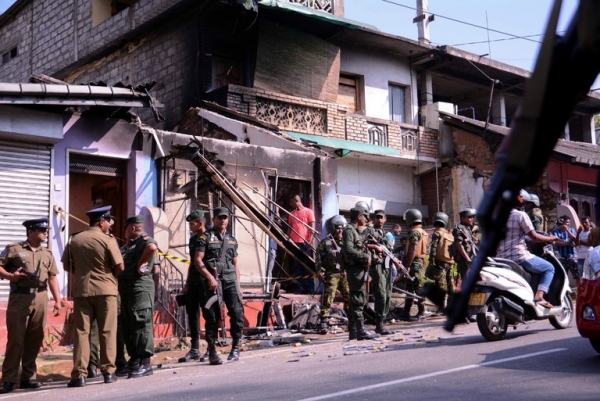On Sunday 4 March 2018, violent mobs broke out in the Sri Lankan district of Kandy. The intensity of these incidents led the government to declare a 10-day state of emergency and a temporary curfew. The riots were carried out by the Sinhalese Buddhist largest ethnic group against the Sri Lankan Muslim minority living in the area. The attacks consisted in arsons, destruction of property such as businesses, houses and mosques; those resulted in the death of a 27 year-old man who recorded, just before dying, an audio describing the attack, leaving public opinion in shock.
Ethnic and religious clashes are not a new phenomenon in Sri Lanka. In fact, the country has been marred by a thirty-year long ethnic conflict between Tamil – mostly Hindu – and Sinhalese Buddhists ended 2006. Recently, animosity between Sinhalese Buddhists and Muslims arose, fuelled by false myths and rumours generated by a mix of fear, economical crisis and global Islamophobic tropes and spread through social media. One example is the belief, now spread among Buddhists, that Muslims are putting contraceptives in the food served to Muslim, as a way to decrease their number and consequently gaining more influence in the territory. Another widespread belief is that Muslims are the one to blame for the Sri Lankan economic crisis.
The Sri Lankan government, by promptly declaring a state of emergency on March 6, has launched a signal of intransigence towards these violent attacks. Nevertheless, this action has not been followed by deeds. In fact, allegedly due to the upcoming elections, the government has been reluctant to take action against the perpetrators, fearing that Sinhalese voters might interpret such action as a way of favouring Muslims. The government has now to face the need for a more pluralist vision in Sri Lanka, taking into account the relation among all the ethnic groups in the country.
To know more, please read:
https://www.crisisgroup.org/asia/south-asia/sri-lanka/buddhist-militancy-rises-again-sri-lanka
https://www.aljazeera.com/news/2018/03/sri-lanka-hate-speech-impunity-fuel-anti-muslim-violence-180310020253272.html
https://www.aljazeera.com/news/2018/03/sri-lanka-muslims-fear-attacks-friday-prayers-180308155336083.html
http://www.bbc.com/news/av/world-asia-43324317/buddhist-rioters-dispersed-in-sri-lanka
https://www.nytimes.com/2018/03/06/world/asia/sri-lanka-anti-muslim-violence.html
https://www.reuters.com/article/us-sri-lanka-clashes/grenade-blast-kills-one-in-sri-lanka-communal-violence-social-media-blocked-idUSKCN1GJ1JT
https://edition.cnn.com/2018/03/06/asia/sri-lanka-state-of-emergency-intl/index.html
http://ucdp.uu.se/#country/780




